‘Fostering independent media a top priority for Sudan’s future’
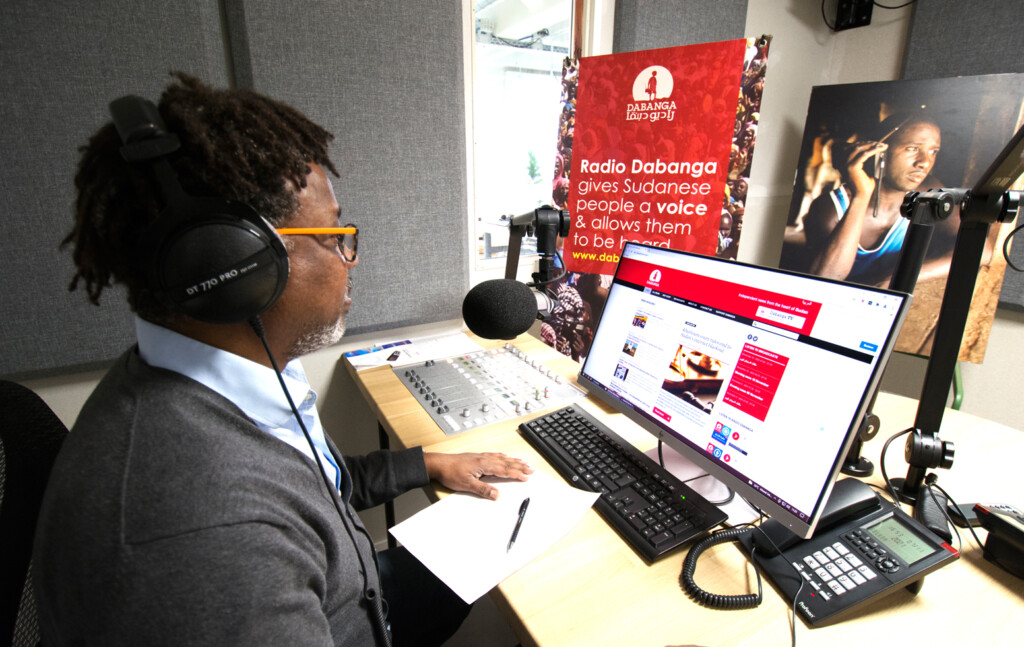
A presenter reads the daily news at Radio Dabanga studios in Amsterdam (Photo: AMB / RD)
By Kamal El Sadig, Editor in Chief, Radio Dabanga
Two and a half years of unrelenting war in Sudan has caused massive devastation, affecting all aspects of life in Sudan, including the media sector. Facilities and equipment have been destroyed, two-thirds of Sudanese journalists have fled the country, all press and media institutions operating inside the country have ceased operations, at a time when the Sudanese people have more need for vital information than ever.
As the world marks the International Day for Universal Access to Information (IDUAI)*, millions of Sudanese are on the move, thousands have been displaced many times over, and thousands more have fled to neighbouring countries as refugees. And as Sudanese civil society, and international humanitarian and governmental actors strive to establish a ceasefire that will lead to a lasting peace, reliable independent media will be pivotal to any transition process.
Over the past decades, Sudan has witnessed repressive regimes that do not accept criticism or fight corruption. These regimes have taken control of the media and turned them into tools of political propaganda. Radio and television have become mouthpieces for the government and the ruling party, instead of playing their role in the public interest by providing citizens with the correct information, raising awareness so that they can contribute to political life and establish their opinions based on correct information, and exercise their democratic right to evaluate government performance at the national and local levels and hold him accountable.
Over time, a succession of Sudanese governments, including the democratic ones, perpetuated this situation, which made the public and private media mouthpieces in the service of the ruling regime. Authoritarian regimes also controlled the private press through the purchase of journalists’ receivables, and advertisements given only to collaborators, if not supporters, in addition to the establishment of “private” newspapers, channels and private news agencies affiliated with the ruling group.
‘The independence of the media and the press are prerequisites for a functioning democratic system in Sudan…’
The collapse of the Sudanese media after the outbreak of the current war between the army and the Rapid Support Forces has confirmed the fragility and weakness of the various media apparatuses, due to their association with the authority on the one hand, and the weakness of the free press on the other hand, with the war destroying its assets and infrastructure.
In light of this bitter reality and the growing role of the parallel media (political propaganda apparatus) and social media, which often spread rumors and false and misleading news, the establishment of free and independent media becomes one of the main tools to ensure the success of the real democratic transition and not the false one.
‘The future of journalism, its independence and its post-war period of work need a modern, conscious and comprehensive roadmap for the needs of the media in all its sectors…’
In this regard, the independence of the media and the press, and the guarantee of sources of funding independent of the Government, are prerequisites for a functioning democratic system in the Sudan. This independence ensures that the media plays its role as the fourth power, monitoring the performance of the government, preventing abuse of power and corruption, and protecting freedom of the press and expression in the country.
The future of journalism, its independence and its post-war period of work need a modern, conscious and comprehensive roadmap for the needs of the media in all its sectors.
‘Independent media is an essential building block for the Sudan of the future…’
As an important mainstay of democracy, independent media is needed to keep the public informed. It will be via independent media that government, as well as e.g. humanitarian actors will be able to reach all sectors of the population. It will be independent media that will monitor and report on the progress, or violations of a ceasefire. This makes independent media an essential building block for the Sudan of the future.
Weaponised information
Access to information is a basic human right, and a matter of survival in Sudan. Since the outbreak of the civil war between the Sudanese Armed Forces and the paramilitary Rapid Support Forces on 15 April 2023, all parties to the conflict have weaponised information, spread disinformation, muddied the waters with conflicting propaganda, and curtailed public access to news via internet and telecommunications blackouts.
‘Access to information is a basic human right, and a matter of survival in Sudan…’
Amid what has become world’s deepest, and often forgotten, humanitarian catastrophe, the war has also devastated the entire Sudanese media landscape. There were about 3,000 journalists in Sudan, but at least 2,000 have fled to neighbouring countries.
Article 19 of the Universal Declaration of Human Rights states that everyone has the right “to seek, receive and impart information and ideas through any media and regardless of frontiers”. Free and unrestricted media are essential for this right to access to information, yet year-on-year, Sudan continues to languish at the bottom of the annual Reporters Without Borders Press Freedom Index, at 149th of 180 countries surveyed in 2024.
In this situation, Radio Dabanga’s shortwave broadcasts are often the only information lifeline for listeners in remote parts of Sudan, for refugees in neighbouring countries, and for people who have been displaced from more urban areas, where internet and mobile phone connections have become increasingly unreliable.
However, threats, attacks, and abuses against journalists have also escalated, making it extremely challenging for correspondents of Radio Dabanga, and most other media, to obtain and verify information that can sometimes mean the difference between life and death to our listeners in the war zones.
As the world marks the International Day for Universal Access to Information, Radio Dabanga joins our colleagues in the Sudanese and world media in the hope for an end to the current hostilities in Sudan, and the incalculable human suffering that are left in their wake.
Robust, free, and independent media is a vital link for the people of Sudan, including the millions who are internally displaced, or have become refugees. Independent media will also be an essential vector to inform Sudanese during the challenging process of rebuilding the country and their lives.
* International Day for Universal Access to Information
On 17 November 2015, the United Nations Educational, Scientific and Cultural Organization (UNESCO) declared 28 September as International Day for Universal Access to Information. Considering that several civil society organizations and government bodies in the world have adopted and currently celebrate this observance, the UN General Assembly also adopted 28 September 2019 as the International Day for Universal Access to Information.
Universal access to information is foundational for transparent, participatory, and accountable governance. Since its proclamation by UNESCO in 2015, the International Day for Universal Access to Information has underscored access to information as a fundamental human right essential for the realization of the Sustainable Development Goals (SDGs). According to UNESCO, by the end of 2024, over 139 countries and territories will have adopted laws guaranteeing access to information, marking significant progress in promoting open societies. Yet, challenges remain in ensuring effective implementation, legal robustness, and public awareness, especially amidst rapid digital transformation and growing ecological threats. (Source: UNESCO)
The theme for IDUAI 2025, Ensuring Access to Environmental Information in the Digital Age, focuses on the vital importance of timely, comprehensive, and cross-border access to environmental information in an increasingly digital world. Environmental data, encompassing climate change, pollution, biodiversity, and disaster risks, transcends national borders, necessitating collaborative, transparent, and innovative global sharing of information. This theme also highlights how digital technologies and open data platforms can enhance public access, foster transparency, and empower citizens and stakeholders to participate meaningfully in environmental governance and sustainable development. #IDUAI #IDUAI2025
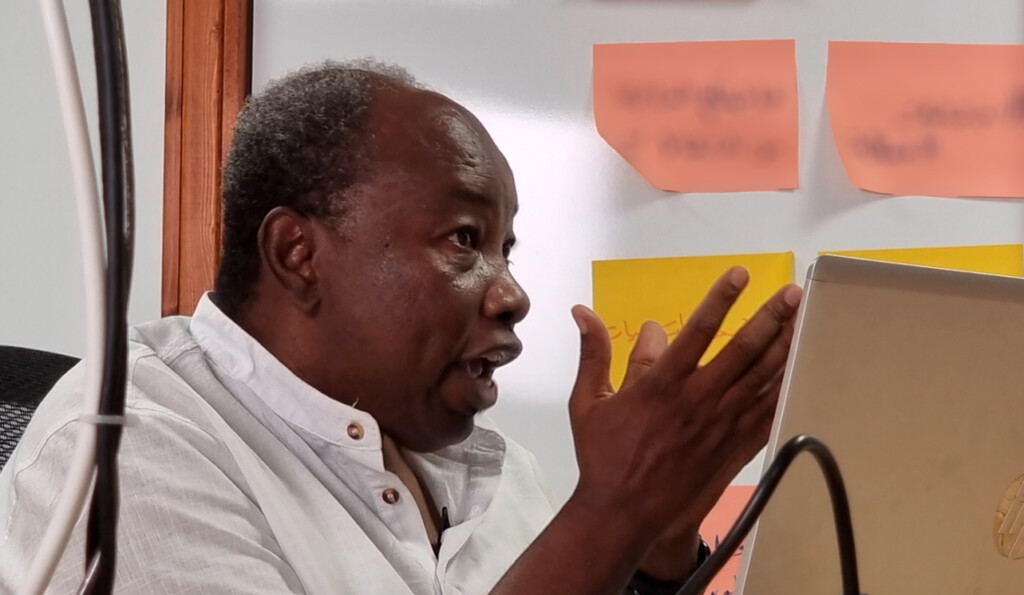
Veteran Sudanese journalist and broadcaster Kamal Elsadig is Editor in Chief of Radio Dabanga, and also chairs the Sudan Media Forum, an alliance of independent Sudanese press and media organisations.







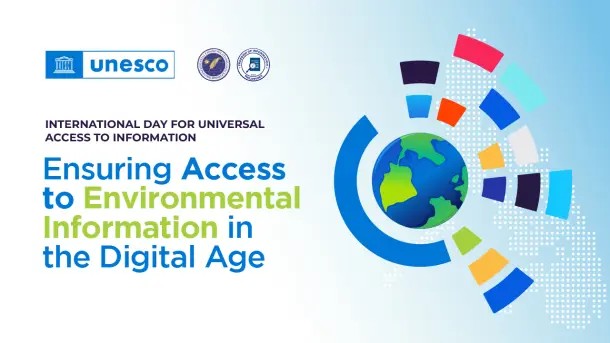
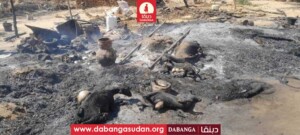
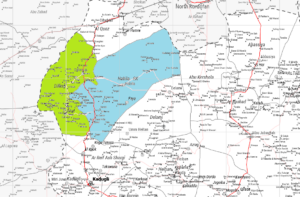


 and then
and then